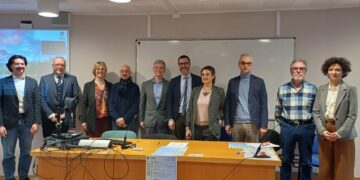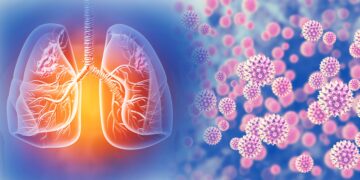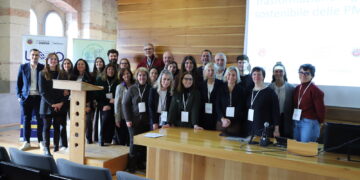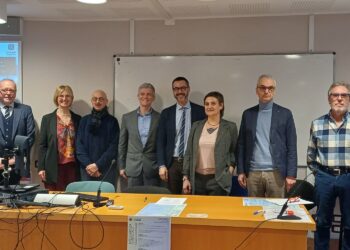Giuseppe Lippi, Professor of Clinical Biochemistry in the Department of Neurosciences, Biomedicine and Movement Sciences at the University of Verona – Italy, is the leading Italian scientist in terms of number of scientific publications on Covid-19 in international indexed journals, according to Scopus, a major database of research papers in science and medicine.
Prof. Lippi, who is also director of the Service of Laboratory Medicine of the University Hospital of Verona (AOUI – Azienda Ospedaliera Universitaria Integrata Verona) and chair of the Task Force on Covid-19 established by the International Federation of Clinical Chemistry and Laboratory Medicine (IFCC), ranked first in Italy with 95 published journal articles on the disease. We therefore spoke with Prof. Lippi about such a prestigious achievement and his current research.
What criteria does the Scopus database use to identify the most prolific scientists?
Scopus is a database that collects scientific publications and calculates bibliometric indices for basic and applied research. The database now includes articles published in more than 16,000 scientific journals, which are peer-reviewed prior to publication. Scopus is the main database used by the Italian Ministry of Education, University and Research to assess the output of scientific research. The criteria used by Scopus to produce statistics are based on search fields (‘title’, ‘abstract’, ‘text’, ‘journal’, ‘authors’, etc.) and keywords. This results in objective and scientifically rigorous list of publications or authors for each search key used.
Apart from the upcoming vaccines, what are the most effective treatments for Covid-19?
Covid-19 is a disease with progressive course and multiple developing stages. A pre-symptomatic post-infexction stage, usually lasting 2 to 5 days, is followed by extensive colonization of upper respiratory tract (especially nose and oropharynx), then by pulmonary involvement – bilateral interstitial pneumonia is the most paradigmatic feature -, which may be followed by systemic dissemination, characterized by a widespread pro-inflammatory state, leading – in the most severe cases – to a prothrombotic state associated with multi-organ dysfunction. The current mortality rate in Italy is around 3.5% according to recent estimates by the John Hopkins University. In the light of this pathogenetic complexity, there is no single treatment for Covid-19. The different treatments that were proven effective (oxygen therapy, antiviral drugs, monoclonal antibodies or ‘hyperimmune plasma’, anti-inflammatory drugs and anticoagulants) are used according to clinical stage and severity of disease. To this end, Covid-19 stands as a paradigm in the context of personalised and precision medicine.
What studies are you currently working on?
A rapid and accurate diagnosis of Covid-19 is essential to limit or contain virus spread – by identifying and isolating positive cases – and for initiating a timely treatment. With this in mind, two Task Forces, which I have the honour and responsibility of coordinating, have been set up: the former national (Gruppo Operativo su Covid-19 of the Italian Society of Clinical Biochemistry and Clinical Molecular Biology – SIBioC) and the latter international (Task Force on Covid-19 of the International Federation of Clinical Chemistry and Laboratory Medicine – IFCC). The aim is to develop, validate, harmonize and govern laboratory techniques useful for screening, diagnosis, prognostic evaluation and therapeutic monitoring of Covid-19. As concerns the studies that we are carrying out in Verona, we are currently involved in a number of national and international collaborations aimed at characterising the biological mechanisms underlying disease progression, as well as for validating new laboratory techniques for diagnosing and monitoring post-vaccine immune response.
Elisa Innocenti

























